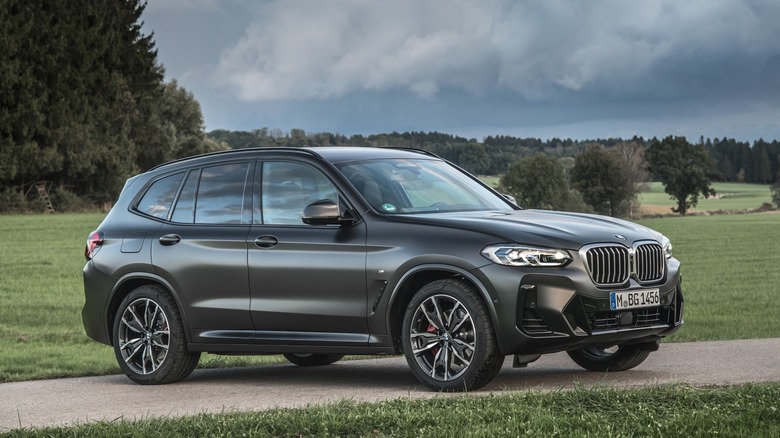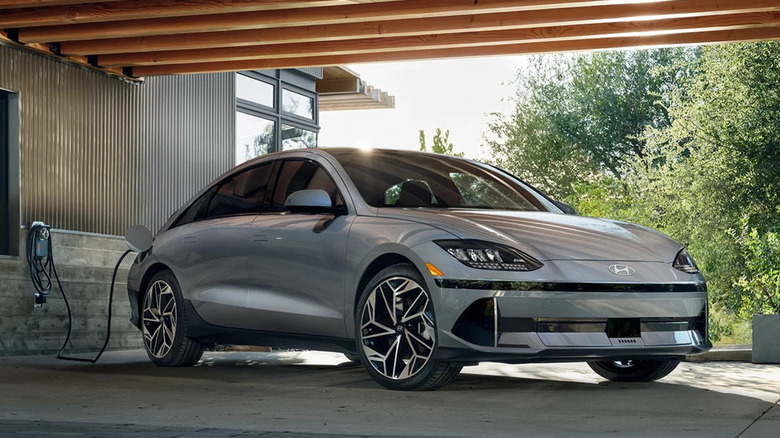Large Vs Small: Which Car Is Safer On The Road?
When looking to buy a car, you're likely thinking of its safety aspects. When looking for the safest car, it might be logical to pick something bigger than your average compact because bigger means safer, right? The answer is not as clear cut, especially in recent years with the introduction of electric vehicles, as EVs are typically much heavier than their gas-powered counterparts.
However, as the IIHS (Insurance Institute for Highway Safety) found, the most dangerous vehicles for the occupant definitely lean towards the smaller side if you factor out vehicles like the Dodge Charger and Challenger that have a higher tendency to be driven unsafely. Cars like the Mitsubishi Mirage and Hyundai Accent, two subcompact cars, topped the list for driver deaths. The Mirage weighs a scant 2,095 pounds, while the Accent clocks in at 2,679 pounds. For comparison, a Toyota Corolla, which did not make the IIHS's list of vehicles with higher driver death rates, weighs 2,955 pounds.
On the opposite end of the spectrum, larger SUVs (and cars in general) were found to protect the driver much more often in the event of an accident. For example, luxury sedans like the Lexus ES 350 and Mercedes-Benz E-Class ranked very low on the number of driver deaths, along with SUVs like the BMW X3 and Nissan Pathfinder.
Smaller doesn't mean less safe
That said, it does not mean that anything smaller than an expensive German executive sedan is a death trap. Cars like the 2023 Toyota Prius are rated very highly by the IIHS, achieving the highest Good scores on crash tests. Similarly, a new 2023 Toyota Corolla and Honda Civic are rated favorably, also garnering Good scores in crash tests. As far as EVs are concerned, the Hyundai Ioniq 6, a sedan that weighs in at a not unsubstantial 3,395 pounds (a maximum of 4,616 pounds with an extended range battery and all-wheel drive), scored very highly by the IIHS.
As the data shows, smaller cars are not inherently more dangerous than SUVs or larger cars. It really depends on what you buy, as long as you avoid very small cars like the aforementioned Mirage if safety is your sole concern. As far as crash tests are concerned, smaller Civics and Corollas are just as capable of protecting the occupants as a Honda HR-V crossover. Obviously, more mass between you and whatever you collide with gives you better odds of escaping unscathed. However, a smaller car shouldn't be counted out entirely, as many safe compacts are on the market. After all, everyone can't just drive aircraft carriers and tanks around in an effort to keep themselves safe.

